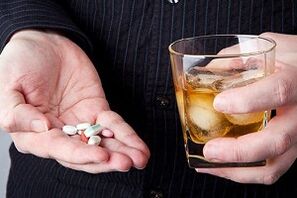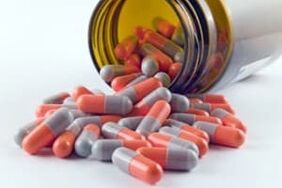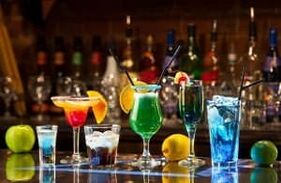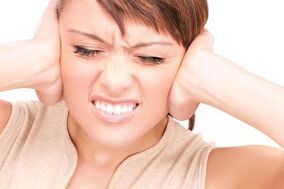Everyone knows not to mix alcoholic beverages and antibiotics under any circumstances, but now the cure is over and they have taken the last pill and it is not clear how much alcohol can be drunk after taking the antibiotics? Should I wait a few days or can I have a few glasses that night? To answer this question, you need to understand in more detail how antibacterial drugs and alcoholic beverages affect the body, and how long it should take after treatment so that drinking does not harm your health.
How many days after antibiotic treatment do you drink alcohol?

Medicines from this group are prescribed to treat inflammatory diseases that the body cannot cope with on its own. Antibiotics attack pathogens, destroying their cellular structure, so the disease recedes and the patient feels better.
However, there is another side to taking antibacterials. Since their elimination from the body falls entirely on the liver, it must deal a significant blow. Experts also showed that people who consumed alcohol during antibiotic therapy had a significantly lower effectiveness of treatment than patients who completely refused alcohol.
It all depends on the medicine used for treatment. It is best to check this with your doctor. It explains in detail how long it will take you to return to your normal lifestyle and take alcoholic beverages. If you cannot see a doctor, you can carefully review the instructions for this medicine.
Must be marked there:
- Duration of treatment;
- This medicine is compatible with ethanol;
- The period during which you should not drink alcohol after completing therapy.
Prohibition usually lasts from three days to seven days. It all depends on the type of medicine and how long it is eliminated from the body.
If the note does not contain any information about the drug's compatibility with alcohol, this does not mean that you can start drinking immediately after stopping treatment.

In any case, it is recommended to wait at least one day for the remaining components of the drug to leave the body.
It is important to note that even if there is no interaction with ethyl alcohol in the package leaflet, you should not drink alcohol immediately after antibiotics. This can damage the immature body after the disease and cause unwanted side effects.
What antibiotics should never be combined with alcoholic beverages?
Despite all the bans from doctors, some patients treated with antibacterial drugs can still drink strong drinks. At the same time, they don’t even think about the possible consequences and argue that any ban on doctors is nothing more than an unnecessary precaution. In fact, if the concomitant use of alcohol and the drug did not affect the patient’s well-being in any way, it does not mean that everything went away without a trace of the body.
Ethyl alcohol and the components of the drug should not interact, however, ethanol can significantly reduce the therapeutic properties of the drug and the effectiveness of the treatment. The disease does not return anywhere and additional therapy is needed, which puts a heavy strain on the liver and other organs of the excretory system.
There is also a group of antibacterial drugs against the background of which it is strictly forbidden to consume any alcoholic beverage. Information on alcohol incompatibilities is included in the prescribing information for these medications, and the patient should be alerted to this by the prescribing physician.
Drugs that are completely incompatible with ethyl alcohol include:

- For tetracyclines.They are widely used in medical practice to treat various infectious diseases.
- Levomycetins.Medicines in this group can cause serious side effects on their own, and taking them with strong drinks can make the toxic effects of the medicine worse.
- Lincosamides.Alcohol consumption while taking these antibiotics has a negative effect on the central nervous system and liver.
- Aminoglycosides.One of the strongest antibacterial agents that does not work well with other drugs. It is categorically contraindicated to drink strong drinks during treatment with these drugs.
- Cephalosporins.A disulfiram-like reaction can occur because these medicines are taken at the same time as strong drinks. The person experiences symptoms of severe poisoning, which leads to a significant deterioration in their health.
- Anti-tuberculosisantibiotics.
- Macrolides.The interaction of these substances with ethanol has a strong toxic effect on the brain and liver.
- Antibioticsin the treatment of leprosy.
There are groups of antibacterial drugs for which the notes do not indicate whether they interact with ethyl alcohol.
These medications are:
- Antifungal agents;
- Penicillin drugs and others.
The fact that the instructions for use do not contain information on the effects of combining medicines with alcohol does not mean that the combination is allowed. It must be taken into account that every person’s body is unique and someone stays healthy and healthy after a combination of alcohol and antibacterial agents and someone is at high risk.

So how long can you afford to drink after treatment with antibacterial drugs? It all depends on the type of antibiotics and the physical condition of the patient. If the annotation indicates that it is forbidden to drink alcohol while taking the drug, it is better to wait until the remaining components of the drug are completely removed from the body. This usually takes about two weeks, so it’s better to wait with strong drinks until the end of this period.
If the instructions for the drug do not indicate the specifics of its interaction with ethanol, it is still better not to drink alcoholic beverages for at least three days after the end of therapy.
If you have any further questions, ask your doctor. It explains in detail whether it is possible to consume alcohol while taking one or another antibacterial drug and tells you how long it is better not to drink alcohol after completing therapy.
Possible consequences of the combination
Alcohol consumption after antibiotics can cause unwanted symptoms and negative side effects from the body. The fact that many antibiotics can prevent the breakdown of ethanol in the body. As a result, acetaldehyde ceases to be excreted from tissues and organs and begins to accumulate in them.
In this case, the body is poisoned and the person experiences painful symptoms of poisoning:

- Nausea and vomiting attacks;
- An unbearable headache that even painkillers cannot relieve;
- Dizziness;
- Breathing difficulty;
- Depressing chest pain;
- Redness;
- Sweating;
- Increase or decrease in blood pressure.
This is by no means a complete list of the serious consequences of the combination of booze and drugs.
It is important to note that in clinical trials to date, few antibiotics have been shown to be incompatible with ethanol. The rest are either not yet fully understood or doubts arise.
In any case, one should be aware that heavy drinking has a negative effect on the treatment process. Ethanol disrupts the normal absorption of drugs and significantly reduces their effectiveness. Therefore, you should reject any alcohol consumption during therapy, even the weakest.
This will help you avoid unpleasant side effects and keep you healthy. After all, no one can say for sure how the simultaneous intake of alcohol and antibacterial agents affects a person’s health.
























